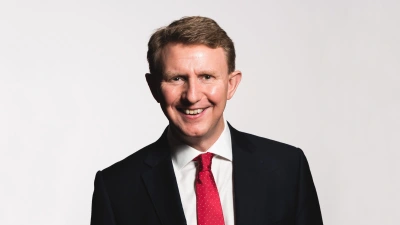‘No free lunch’ for advisers in alternatives



There is a huge influx of alternative products coming to the market, but advisers must be careful with their selection as they are easy to mistime, according to Morningstar.
Alternatives have grown dramatically in recent years, with funds being launched in asset classes such as infrastructure, commercial property, private credit, private equity and hedge funds, prompted by investor desire for increased return and diversification.
Fundraising for alternative asset classes has had a strong start to the year, according to J.P. Morgan, which is set to make 2024 a “significantly stronger year than 2023”.
Speaking with Money Management, global chief investment officer, Dan Kemp, said the higher risk ratings on these strategies meant advisers need to select carefully, especially for risk-averse clients or those who need to access their money easily.
“It’s important to remember there’s no such thing as a free lunch in investment. That diversification comes at the expense of lower liquidity and increased complexity and the high returns can come with greater risk. This may be fine for some but may be troubling for others.
“The challenge for advisers serving end investors is it is easy to mistime these investments. A lot of these alternatives can be difficult strategies to own and difficult to exit because of the risks and the liquidity. You can’t necessarily exit when you want to and some people cannot take that risk with their money.”
He gave the example of global macro hedge funds which, he said, perform well in times of high volatility and market crashes. However, these will often deliver lower returns during subsequent stable years which prompts people to sell them, often just before the next market crash when they would perform best. In other cases, listed funds have fallen to huge discounts as managers have been unable to sell the underlying assets.
Kemp also reminded advisers that access difficulties meant they may not even be access to the strategy they want and potentially end up in a lesser vehicle.
“Remember you are buying a strategy and not just broad market exposure, so the quality of that underlying asset is of paramount importance. People very often forget that the diversification of returns can be very large and it can be impossible to access the best strategies.
“So for advisers who are used to selecting the best strategies, that’s not often the case in alternatives so they can end up disappointed in lower-quality ones.”
Despite the influx of products coming to the market, Kemp said this current type of market environment isn’t ideal for the asset class.
“With positive real yields and reasonable valuations in many equity markets, there is probably less need for alternatives today than there was in the past. That not to say some alternatives won’t still give you great returns but if you’re in an environment where you can get a yield that is already higher than cash in a safe investment, then that’s a good starting point.
“Often demand trails changes in market conditions.”
Kemp also discussed the market landscape for advice in the UK, where he is based, compared to Australia, reflecting that similar challenges are faced by advisers worldwide in terms of the supply-demand imbalance and difficulties to enter the industry.
“They both have similar challenges and similar opportunities.
“It’s easy to see the challenges, but there are also opportunities for advisers. It’s a good, strong business to have. The regulatory costs do keep rising, but it’s important to see the other positive side of that where they have this opportunity to change the life of investors and help them secure their future.
“There are also opportunities to increase the productivity of adviser’s businesses whether that’s through new communication, software or third-party investment managements services.”
Recommended for you
Greater consistency across the ASIC adviser exam has helped boost the number of first-time candidates this year with many opting to sit before undertaking a Professional Year.
Financial advice practice Eureka Whittaker Macnaught is in the process of acquiring three firms to boost its annual revenue to $25 million.
AMP has partnered with Dimensional Fund Advisors and SouthPeak IM to launch a suite of investment solutions aimed at expanding retail access to traditionally institutional funds.
The Financial Advice Association Australia has appealed to licensees to urgently update their FAR records as hundreds of advisers are set to depart by the end of the year.












